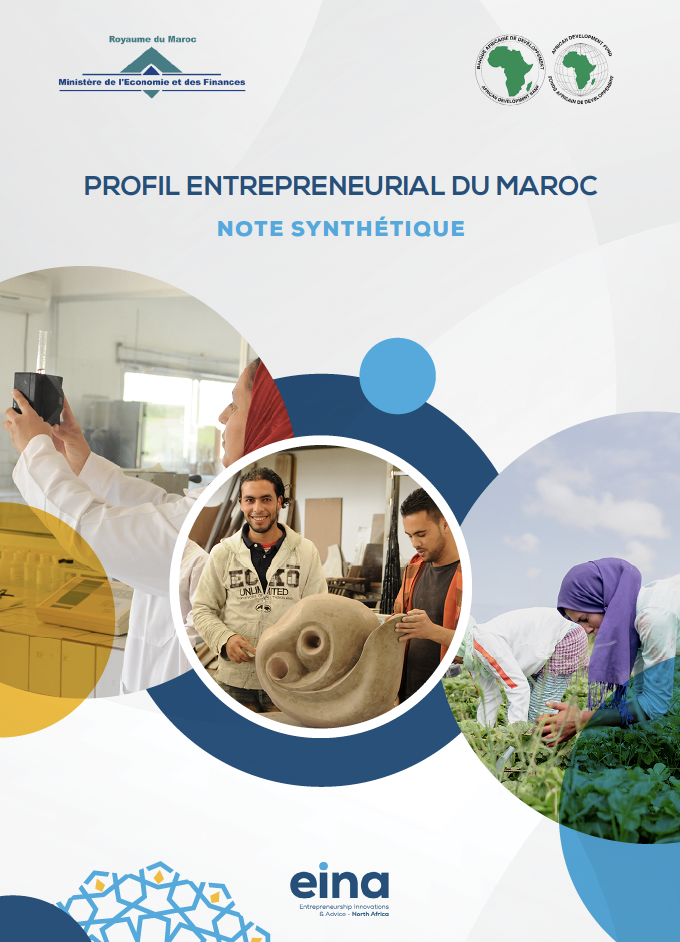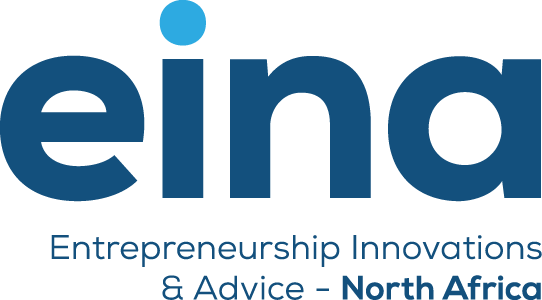Morocco: The Ministry of Economy and Finance and the African Development Bank unveil the results of a study on the country's entrepreneurial profile

Rabat, December 5th, 2023 – The Ministry of Economy and Finance of Morocco and the African Development Bank (AfDB), through its entrepreneurship initiative "EinA" (Entrepreneurship, Innovations and Advice - North Africa), today December 5th, 2023, unveil the results of a joint study entitled Profil entrepreneurial du Maroc (Entrepreneurial Profile of Morocco).
A first on the continent, the study is based on a national survey of entrepreneurial profiles, representative of the labor market at national and regional levels. It identifies the socio-demographic characteristics and intrinsic capacities of entrepreneurs and determines the main constraints and needs in terms of support for creating and developing their businesses.
The survey covered 9085 individuals in 3034 households, from which 2297 entrepreneurs (established and potential) were identified. These entrepreneurs represent a population of 7.4 million individuals throughout Morocco.
The results of the study show that the Kingdom has an entrepreneurial potential commensurate with its level of development. Indeed, this potential is estimated at 25% of the Moroccan population aged 18 and over, divided between 9% of established entrepreneurs and 16% of potential entrepreneurs who have initiated conceptual or concrete actions with a view to setting up a business. Nevertheless, the study reveals that 57% of established entrepreneurs are doing so out of necessity, through micro and small businesses in low-productivity sectors and activities (almost 50% are self-employed and 40% are heads of businesses with 1 to 3 employees).
The study reveals that 22% of businesses created are run by women. As for potential entrepreneurs, 44% are women, reflecting their growing aspiration to engage in entrepreneurship.
The rate of informal entrepreneurship is over 70% nationwide. Regulations (taxation, social charges, and administrative complexities) and the instability of economic activity are perceived as the main constraints to formalization. On the other hand, access to health insurance and retirement benefits are seen by entrepreneurs as an incentive to formalize their activities, which supports the idea of extending social protection.
In addition, the study confirms that established and the development of micro, small and small-sized enteprises (MSME) represent an important source of short and medium-term employment for the country. If just 5% of established or potential entrepreneurs were able to develop or create a viable business, this could generate an average of 100,000 jobs a year nationwide. The study identifies five pillars that should form the basis of a strategy to promote entrepreneurship in Morocco: Markets; Active Support; Regulations; Education and Financing (MAREF).
In terms of markets, the aim is to unleash the potential of entrepreneurs by facilitating access to markets and mobilizing private investment at territorial level and private investments to develop value chains and create business opportunities for MSMEs.
In terms of active support, almost 60% of entrepreneurs, particularly women, require technical assistance. The aim is to enable existing programs to exceed a threshold in terms of demand coverage, and to put in place a range of support services tailored to a heterogeneous population of entrepreneurs.
In terms of regulations, there is the need for the regulatory framework to evolve to better encourage the creation and development of MSME, the formalization of informal economic units and the extension of Social security to all self-employed workers.
An entrepreneurial strategy will also require reforms in the education sector. In the short term, it is necessary to improve the level of education of the working population, including neo-entrepreneurs, and to promote entrepreneurship in vocational training and university education. In the medium and long term, the development of the intrinsic skills needed for entrepreneurial activity requires interventions in pre-school and basic education.
Finally, the need for financing is expressed by more than 80%, yet only 6.7% of entrepreneurs have submitted a financing application to a bank. This paradox could be explained by the importance of the informal sector and non-viable entrepreneurial projects.
It should be noted that public action has already deployed elements of response to the issues raised by this investigation. Several reforms have been implemented by the government, notably the strengthening of the national system of guaranteed financing and support for entrepreneurship, the adoption of a national strategy for financial inclusion, the adoption of a new investment charter including a support mechanism for MSME, and the integration of a pillar dedicated to entrepreneurship in the national business environment framework. In addition, several initiatives and programs in support of entrepreneurship have been set up for the benefit of certain targets (National Initiative for Human Development, Intelaka, Forsa, Innov Invest, Ana Mokawil, etc.).
Link to infographics :
https://www.eina4jobs.org/entrepreneurship-profile-morocco-infographics
Link to the Note synthétique - Profil entrepreneurial du Maroc :
https://www.eina4jobs.org/fr/profil-entrepreneurial-du-maroc
